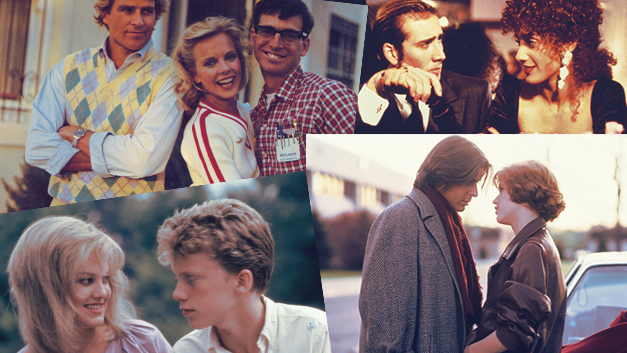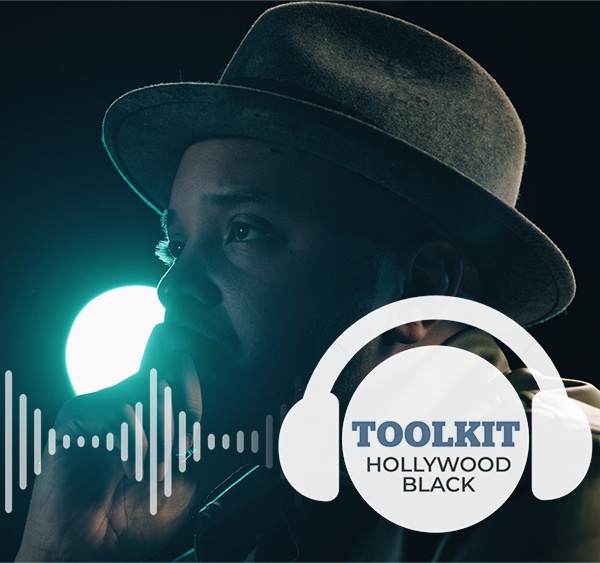Full disclosure: This essay is being written by an avowed Bender (AKA Judd Nelson’s character in “The Breakfast Club”) apologist. And yes, nearly four decades since the release of the classic John Hughes teen dramedy, I’m well-aware of how problematic that is by our contemporary standards. While (sigh) the fingerless gloves, shredded denim vest, and studs made Bender the epitome of swoon-worthy bad boy chic, it took close to a decade for my still-forming teenage brain to realize that no, that is not, in fact, the ideal form of sensitive masculinity….because Bender is kind of (OK, totally) a creep.
But this just goes to show how deeply the ’80s-era sexist, problematic dreamboat bad boy character has permeated culture. It’s the patriarchy of romance, by way of Reagan era sensibilities still relevant fifty years later. Broken boys will be broken boys in need of healing; but why has it taken half a century to talk about how messed up that logic is?
While 1985’s “The Breakfast Club” follows five very different teens during a weekend detention session, it is framed mostly from the perspective of Bender, a wrong-side-of-the-tracks bad boy who just wants to be accepted by his peers. But that fervent desire also involves coercing his popular classmate Claire (Molly Ringwald) into liking him, by way of sexually harassing and teasing her during their day spent alongside fellow jocks, nerds, and weirdos.
And yet Bender still “gets” Claire, plus one of her diamond earrings as a keepsake, ending the film with a triumphant fist raised in the air. Their apparent romantic connection is proof that class can be defied and transcended, that there is common ground between teens with shared hopes and dreams and differing home lives. Or, it’s that Bender’s pressuring and mocking just finally led Claire to crack.

Some of the most iconic mainstream comedic films of the ’80s, ranging from Hughes’ teen-centric canon to the warped dark cult classic comedy “Vampire’s Kiss,” consistently made rape an easy punchline. Many of the decade’s films were obsessed with who was having sex, how, and how much, permeating the (mostly white, mostly upper class) frat boy culture that only in the past decade has only begun to be dismantled.
The ’80s, moving on from the ’50s, circa “Rebel Without a Cause” and “Splendor in the Grass,” revamped the concept of a film made of teenagers, arguably created the teen blockbuster in the process. Translation: joking about non-consensual sexual encounters, taking advantage of passed out girls, and doing anything for wannabe cool boys to disrupt the hierarchy of high school hotness was marketed directly to adolescents, informing their opinions and understandings of social norms. (Hey, I did warn you that Nelson’s Bender from “Breakfast Club” was taught to me as the highest form of man.)
From the strained production on Adrian Lyne’s “9 1/2 Weeks” to Brian de Palma’s voyeuristic pornography venture into the L.A. underworld with “Body Double,” echoing the mental unraveling of “After Hours” and “Vampire’s Kiss,” the ’80s presented consent as a flimsy crux for plots. Teen comedies to erotic thrillers, deranged dramas to romance films, consensual sex was presented as an afterthought, or, at worst, a satirical quip.
Too often, the very question of consent in ’80s features was toyed with as a throwaway joke. The legacy of Hughes’ “Sixteen Candles” was revisited by lead actress Molly Ringwald in a 2018 New Yorker essay in the wake of Supreme Court Justice Brett Kavanaugh’s controversial appointment (and his revelation that he loved ’80s films like “Animal House,” “Caddyshack,” and “Fast Times at Ridgemont High”) and the film’s anniversary.
“If attitudes toward female subjugation are systemic, and I believe that they are, it stands to reason that the art we consume and sanction plays some part in reinforcing those same attitudes,” Ringwald wrote at the time.

A disturbing sequence in the 1984 film that is often pointed to as one of the now-cringe elements of the comedy shows her Ted (Anthony Michael Hall) happening upon his crush Caroline (Haviland Morris) passed out drunk at a party. Heartthrob Jake (Michael Shoeffling), who is also Caroline’s boyfriend, then tells Ted that he can “violate her 10 different ways” if he wanted to, and asks Ted to drive Caroline home. The next morning, it’s revealed that they had sex, though neither remember it.
“I’m not saying that it’s O.K. to then be raped or to have nonconsensual sex,” Haviland told former co-star Ringwald about the role. “But … that’s not a one-way street. Here’s a girl who gets herself so bombed that she doesn’t even know what’s going on.”
She later added, “You know, the more I think of it this evening, oddly, the less uncomfortable I am with Caroline. Jake was disgusted with her and said he could violate her 1[0] ways if he wanted to because she was so trashed, but he didn’t. And then, Ted was the one who had to ask if they had had sex, which certainly doesn’t demonstrate responsible behavior from either party, but also doesn’t really spell date rape. On the other hand, she was basically traded for a pair of underwear. Ah, John Hughes.”
The permeating idea that the “nerd” character could only get laid with the help of alcohol, disguises, cons, or coercion made for multiple generations of self-identifying “nice guys” to be unassuming predators. Released one year later, Hughes’ “Weird Science” takes that idea to even crazier ends, as it follows two teenage boys who craft the perfect woman, a character who is literally constructed for their pleasure.

Elsewhere, “Revenge of the Nerds” includes a subplot that involves tricking a woman (Julie Montgomery) into having sex with a titular nerd (Robert Carradine) by pretending to be her boyfriend, and later distributing naked photos of her without her awareness. But they end up together, so all is forgiven — encouraged even. And that’s the recurring theme of teen comedies, marketed to the adolescents the films show onscreen: If you try hard enough and commit assault with “good intentions,” you just might get the out-of-your-league girl in the end.
Of course, not every ’80s film was problematic in its approach to sexual politics, at least as it applies to questions of consent. “Risky Business,” which celebrates its anniversary this year, follows an awkward teen (Tom Cruise) who turns street-smart when he retrofits his family home into a makeshift brothel to make some quick cash, falling in love with a sex worker (Rebecca DeMornay) in the process. “Fast Times at Ridgemont High,” despite being named by Kavanaugh as a favorite film of the era, is arguably one of the most empowered teen films of the era, showcasing a women’s right to choose whom to have sex with and later opting for an abortion.
Stepping outside the microcosm of the halls of high school, 1989 film “Vampire’s Kiss” at once mocked yuppie culture while embodying the sexist obsessions of power-hungry men. Peter (Nicolas Cage) is an insatiable club rat, an elite literary agent who can get any woman he wants. But that’s part of the predatory approach: Peter becomes fixated with the woman he can’t have, his secretary Alva (María Conchita Alonso), whom he verbally abuses and later rapes while believing he is a vampire.

Now, “Vampire’s Kiss” is a mindfuck of a movie, and that’s an officially critical response: Pauline Kael called Cage’s performance “airily amazing” with the then-up and coming actor performing “way-out stuff that you love actors in silent movies for doing” (via The Ringer). “After Hours” screenwriter Joseph Minion penned the script while in the throes of a toxic relationship; in a full circle moment, Judd Nelson was briefly attached to the lead role after Dennis Quaid dropped out and before Cage agreed to be cast.
Cage went on to actually eat a cockroach while in character, allegedly demand co-star Jennifer Beals (who plays the seductive vampiress) to dose her feet in yogurt during their love scenes, and even scared actual homeless people in New York City while pretending to live on the street for the final act of the film.
Cage’s Peter is ultimately killed by Alva’s brother after she reports the rape. However, death is a relief to Peter, whose grip on reality becomes further untethered in a series of fictional visits with his therapist. Screenwriter Minion called the film part of his “anxiety trilogy” coupled with “After Hours” and shelved project “Trafficking,” and Peter’s prowl to women in both night clubs and his office is viewed as a pathetic urge encouraged by his mystical transformation into being a bloodsucker.
In short, raping Alva is essentially forgiven in the context of the film, and Peter “wins” by dying at the end. “Vampire’s Kiss” director Robert Bierman instead told The Ringer that the film has unevenly aged in the decades since: “There are certain scenes that are so modern — the way women are treated in it, sexuality, the problem with personal mental conditions, particularly with young men who have become obsessed,” Bierman said.
For the most modern elements of “Vampire’s Kiss,” four decades later, to be the obsession with a subordinate, the rape of a woman, and the emotional spiral and mental breakdown of a high-powered man, what does that say for the world today?
The ’80s may be far behind us, but these films’ legacies continue on. Oscar-winning “Promising Young Woman,” a dark satire on the rape revenge films in a post-#MeToo world, upends the “nice guy” trope that the ’80s nerds were built upon. “Vampire’s Kiss” perfectly pairs with 2000 film “American Psycho” as Cage’s Peter is akin to Christian Bale’s Patrick. And just for kicks, “American Psycho” is set in the ’80s, the high time of Reagan era wealth and the invincibility of being a man who views women as objects to be bought and sold, taken and destroyed.
With a resurgence of ’80s films being remade and reimagined for modern audiences, we can only hope the tropes that have already done their cultural damage are not repeated for the next generation.





